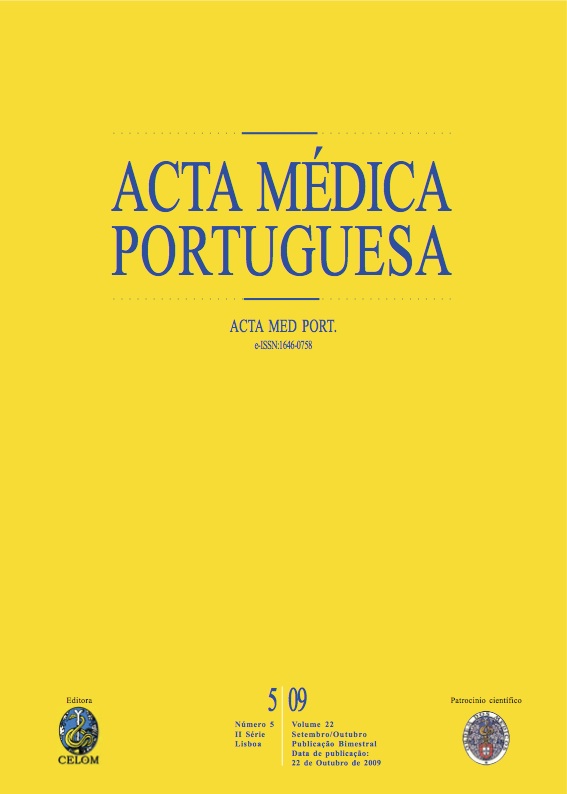O CAMDEX-R e o diagnóstico de demência no Brasil: tradução e adaptação transcultural de entrevista com acompanhante.
DOI:
https://doi.org/10.20344/amp.1715Resumo
The Cambridge Examination for Mental Disorders of the Elderly - revised (CAMDEX-R) is an instrument developed in England and used as an aid to the diagnosis of dementia, mainly in its initial forms. It contains nine sections (named from A to I), including a neuropsychological evaluation and an interview with an informant (section H). This kind of interview has proved to be useful in the detection of dementia.To translate and transculturally adapt to Brazilian Portuguese the section H of CAMDEX-R.The section under study is a structured interview, composed by 130 items, applied to an informant aiming at diagnosing a demential state. The study was conducted by the universalist approach, with evaluation of conceptual, item, semantic and operational equivalences. Two independent translations into Portuguese were done by two bilingual Brazilians. Those were backtranslated into English by two bilingual Americans, also independently, without knowing the original version. From the translations, backtranslations and original text, another bilingual Brazilian suggested a synthesis-version. Based on the synthesis-version, a multidisciplinary group of two geriatricians and two gerontologists made the test-version with the transcultural adaptations needed. The test-version was used in the pre-test in the geriatric outpatient department of , and it was carried out with twenty-five caregivers who were stimulated to comment and paraphrase the questions. The main focus was the items considered by the group of specialists to be of greater difficulty to adapt. The identified problems returned to the group of specialists, who produced the final-version then.The Portuguese version was made with some modifications to the literal translation, aiming at keeping a semantic equivalence to the original interview.The conceptual, item and semantic equivalences were considered established. The operational equivalence is in progress. The concern about our target population's low level of schooling was present during the whole transcultural adaptation process, leading us to choose more popular words.The Brazilian version of CAMDEX-R's Section H was considered suitable for daily clinical use.Downloads
Downloads
Como Citar
Edição
Secção
Licença
Todos os artigos publicados na AMP são de acesso aberto e cumprem os requisitos das agências de financiamento ou instituições académicas. Relativamente à utilização por terceiros a AMP rege-se pelos termos da licença Creative Commons ‘Atribuição – Uso Não-Comercial – (CC-BY-NC)’.
É da responsabilidade do autor obter permissão para reproduzir figuras, tabelas, etc., de outras publicações. Após a aceitação de um artigo, os autores serão convidados a preencher uma “Declaração de Responsabilidade Autoral e Partilha de Direitos de Autor “(http://www.actamedicaportuguesa.com/info/AMP-NormasPublicacao.pdf) e a “Declaração de Potenciais Conflitos de Interesse” (http://www.icmje.org/conflicts-of-interest) do ICMJE. Será enviado um e-mail ao autor correspondente, confirmando a receção do manuscrito.
Após a publicação, os autores ficam autorizados a disponibilizar os seus artigos em repositórios das suas instituições de origem, desde que mencionem sempre onde foram publicados e de acordo com a licença Creative Commons









